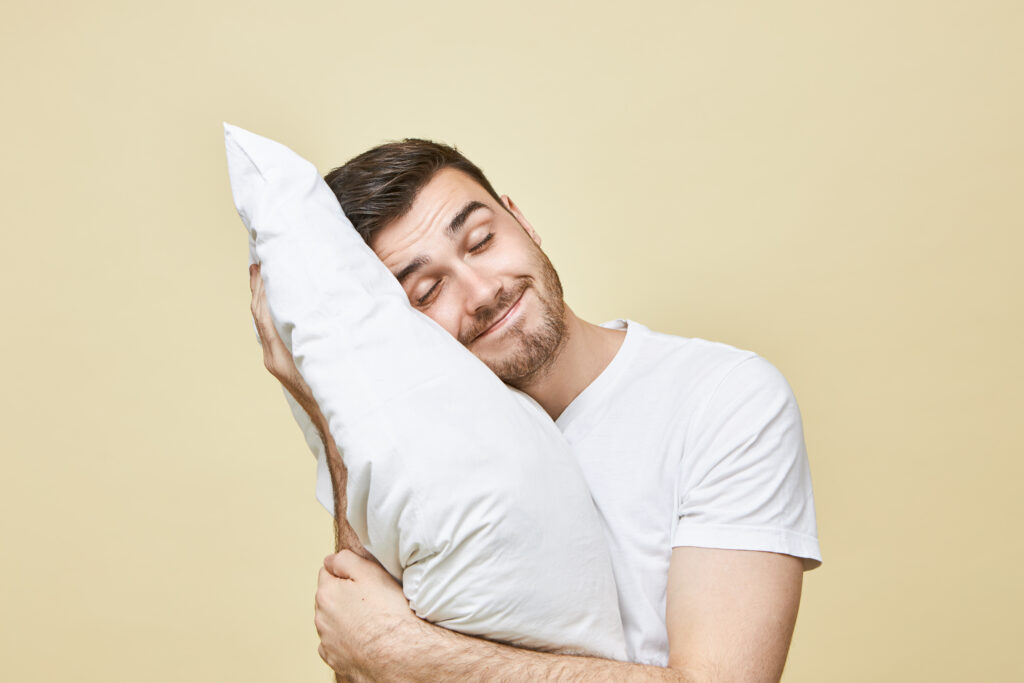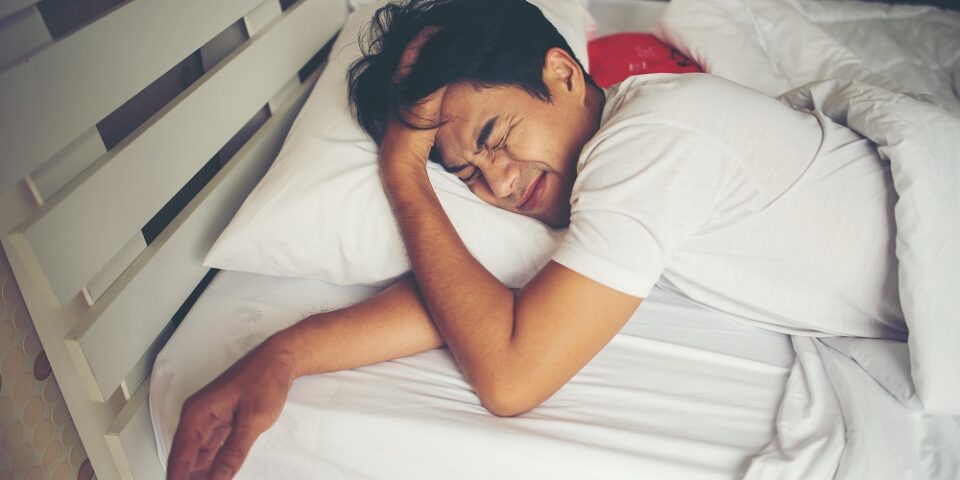Narcolepsy is a persistent neurological condition that makes it challenging for the brain to regulate sleep-wake cycles. Symptoms of narcolepsy include excessive tiredness, hallucinations, and sleep paralysis. Extreme sleepiness and unintentional bedtimes during activities like work or school are signs of this disease, which has a negative impact on quality of life. Learn here narcolepsy’s natural treatment to cure the disorder quickly.
What Is Narcolepsy?
Narcolepsy is a chronic disorder characterized by excessive daytime sleepiness and sudden loss of muscle control which is known as cataplexy. People are known to take narcolepsy natural treatment for its effective cure.
It is a relatively rare disorder, with an estimated prevalence of around 0.05% to 0.2% of the population. However, the prevalence may be underestimated, as narcolepsy can often be misdiagnosed or undiagnosed.
Narcolepsy can affect people of any age, but it usually develops in adolescence or early adulthood. It affects both men and women equally. There is no cure for narcolepsy, but you can follow the best natural remedies for narcolepsy and some lifestyle changes to reduce its effect.
What are the Symptoms of Narcolepsy?
Narcolepsy is caused by a deficiency of the neurotransmitter hypocretin, which is produced by the hypothalamus in the brain. There are various natural cures for narcolepsy. The symptoms of narcolepsy can vary from person to person, but the following are the most common:
- Excessive daytime sleepiness: People with narcolepsy experience an overwhelming and persistent sense of sleepiness throughout the day. They may struggle to stay awake even after a good night’s sleep and feel a strong urge to nap or sleep at inappropriate times.
- Cataplexy: This is a sudden loss of muscle tone triggered by emotions such as laughter, anger, or excitement. During an episode, the person may experience weakness, limpness, or even collapse, but they remain fully conscious and aware.
- Sleep paralysis: This is the temporary inability to move or speak while falling asleep or waking up. The person may feel like they are unable to move, breathe, or speak, but the episode usually passes within a few minutes.
- Hallucinations: These are vivid and often frightening experiences that occur while falling asleep or waking up. People with narcolepsy may see or hear things that aren’t there or feel like they are in a dreamlike state.
- Disrupted nighttime sleep: People with narcolepsy often have trouble staying asleep at night, waking up frequently, or experiencing vivid dreams and nightmares. It becomes difficult to do narcolepsy treatment at home.
Many people start working on narcolepsy natural treatment to overcome these symptoms easily. Also, narcolepsy is a life-long problem for some people. While intake of nest vitamins for narcolepsy can reduce the effect of disease and give you a healthy life.

What Are The Causes Of Narcolepsy?
The exact cause of narcolepsy is not fully understood, but research suggests that it is related to a combination of genetic and environmental factors. One of the main causes of narcolepsy is the loss of cells in the brain that produce the neurotransmitter hypocretin, also known as orexin.
Hypocretin helps to regulate sleep-wake cycles and promotes wakefulness. When there is a deficiency of hypocretin, the brain’s ability to regulate sleep and wakefulness is disrupted, leading to the symptoms of narcolepsy.
Some of the other factors that may contribute to narcolepsy include:
- Autoimmune disorders: Some cases of narcolepsy may be caused by an autoimmune reaction that attacks the cells that produce hypocretin.
- Genetics: Narcolepsy can run in families, and certain genetic variations have been associated with an increased risk of developing the condition.
- Brain injuries: Traumatic brain injuries or other conditions that damage the hypothalamus, the part of the brain that produces hypocretin, can lead to narcolepsy.
- Infections: Some viral infections, such as the H1N1 flu virus, have been linked to the onset of narcolepsy. These infections may be treated by taking narcolepsy supplements at home.
- Exposure to toxins: Exposure to certain toxins or chemicals may increase the risk of developing narcolepsy. You should start narcolepsy natural treatment if experiencing these issues.
Types of Narcolepsy
There are two main types of narcolepsy: type 1 narcolepsy and type 2 narcolepsy. Both types involve excessive daytime sleepiness, but they differ in their symptoms and the underlying causes.
Type 1 narcolepsy, also known as narcolepsy with cataplexy, is characterized by the sudden loss of muscle tone or weakness, known as cataplexy. Cataplexy can be triggered by strong emotions, such as laughter or anger. People with type 1 narcolepsy also experience other symptoms, such as sleep paralysis, hallucinations, and disrupted nighttime sleep. Type 1 narcolepsy is caused by a loss of orexin-producing neurons in the brain, which regulate sleep and wakefulness.
Type 2 narcolepsy, also known as narcolepsy without cataplexy, is characterized by excessive daytime sleepiness, but without episodes of cataplexy. People with type 2 narcolepsy may still experience sleep paralysis, hallucinations, and disrupted nighttime sleep. Type 2 narcolepsy is thought to be caused by a dysfunction in the mechanisms that regulate sleep and wakefulness, rather than a loss of orexin-producing neurons.
It is worth noting that other types of sleep disorders can cause excessive daytime sleepiness and other symptoms similar to narcolepsies, such as sleep apnea, restless legs syndrome, and periodic limb movement disorder. Therefore, it is important to consult with a healthcare professional for proper diagnosis and treatment.

Natural Ways To Treat Narcolepsy
While there is no cure for narcolepsy, there are natural and lifestyle approaches that can help manage the symptoms and improve the quality of life. Here are some tips:
1. Schedule Naps
Scheduling naps is an important aspect of treating narcolepsy. Here are some tips on how to schedule naps:
- Stick to a regular sleep schedule: Try to maintain a consistent sleep schedule, going to bed and waking up at the same time each day.
- Plan frequent naps: People with narcolepsy often feel drowsy during the day and may need to take multiple naps to manage their symptoms. Schedule short, frequent naps throughout the day to help manage daytime sleepiness.
- Time your naps wisely: Schedule naps for times when you typically experience the most sleepiness, such as mid-morning or mid-afternoon.
- Keep naps short: Aim to keep naps short, around 20-30 minutes, to prevent interfering with nighttime sleep.
- Create a nap-friendly environment: Create a comfortable and quiet environment to nap in, with a cool temperature and low lighting.
- Use alarms: Set an alarm to wake up from your nap to avoid oversleeping and interfering with nighttime sleep.
Remember, scheduling naps is just one part of managing narcolepsy symptoms. Work with your doctor to develop a comprehensive treatment plan that addresses all aspects of your condition.
2. Use Acupuncture and Acupressure Therapy
Acupuncture is a traditional Chinese medicine practice that involves the insertion of thin needles into specific points on the body to stimulate the flow of energy or “Qi.” In acupuncture therapy for narcolepsy, needles may be inserted into specific points on the body to improve the flow of Qi and promote relaxation. This may help to reduce the frequency and severity of narcoleptic episodes and improve overall sleep quality.
Acupressure therapy is similar to acupuncture but involves applying pressure to specific points on the body with the fingers, hands, or other tools instead of needles. Acupressure therapy for narcolepsy may involve applying pressure to specific points on the body associated with sleep and relaxation, such as the temples, the base of the skull, and the wrists.
While acupuncture and acupressure therapy may offer some relief for narcolepsy symptoms, they should not be considered a substitute for medical treatment. It is important to consult with a healthcare professional before starting any new treatment for narcolepsy.
3. Follow a Proper Diet, Include Carbs
A well-balanced diet can help improve overall health and reduce fatigue. While there is no specific diet for narcolepsy, there are dietary changes that can help manage the symptoms of narcolepsy.
- Stick to a regular meal schedule: It is important to eat your meals at regular times each day, as this can help regulate your body’s internal clock and promote better sleep at night.
- Eat a balanced diet: A balanced diet is important for overall health and well-being. Make sure to eat plenty of fruits, vegetables, whole grains, lean proteins, and healthy fats.
- Stay hydrated: Drinking plenty of water is important for overall health and can help manage narcolepsy symptoms by preventing dehydration, which can cause fatigue.
4. Exercise
Regular exercise can help improve overall health and well-being in people with narcolepsy, but it is important to approach exercise cautiously to avoid exacerbating symptoms. Here are some tips on how to incorporate regular exercise into your narcolepsy treatment plan:
- Consult with your healthcare provider: Before beginning an exercise program, talk with your healthcare provider to ensure that it is safe and appropriate for your individual needs.
- Start slowly: Begin with low-impact exercises such as walking, biking, or swimming, and gradually increase the duration and intensity of your workouts.
- Schedule exercise strategically: Exercise at times when you feel most alert and awake, such as in the morning or early afternoon.
- Be consistent: Aim for regular exercise, at least 30 minutes a day, most days of the week. Consistency is key to achieving the benefits of exercise.
- Monitor symptoms: Keep track of how exercise affects your narcolepsy symptoms. If exercise worsens symptoms, consider adjusting the timing, duration, or intensity of your workouts.
- Consider a trainer or physical therapist: Work with a qualified professional to develop an exercise plan tailored to your specific needs and abilities.
5. Avoid Smoke/Alcohol
Avoiding alcohol and smoking habits is important for managing narcolepsy symptoms. Here are some tips to help you avoid these habits:
- Understand the effects of alcohol and smoking on narcolepsy: Alcohol can disrupt sleep, leading to worsened narcolepsy symptoms. Smoking can also negatively impact sleep quality and cause breathing problems that can further worsen narcolepsy symptoms.
- Identify triggers: Recognize the triggers that make you want to smoke or drink alcohol, such as stress, social situations, or boredom.
- Develop healthy coping strategies: Find healthy ways to cope with triggers, such as exercising, meditating, or spending time with supportive friends or family.
- Seek support: Reach out to family, friends, or a support group for help in quitting smoking or drinking alcohol.
- Avoid temptation: Stay away from situations where alcohol or smoking are present, and remove any alcohol or cigarettes from your home.
- Consider therapy: Consider therapy or counseling to address any underlying emotional or psychological issues that may be contributing to smoking or drinking habits.
6. Try sleep hygiene hacks
Establishing a consistent sleep schedule can help regulate sleep-wake cycles and improve nighttime sleep quality. Aim to go to bed and wake up at the same time every day, including on weekends.
Creating a sleep-conducive environment can help improve sleep quality. Keep your bedroom cool, dark, and quiet, and avoid using electronic devices before bedtime.
7. Consider reaching out to Support Groups
Narcoleptics may benefit from joining support groups. Attending support group sessions can provide people with new coping mechanisms for their symptoms or make them feel less lonely. These organizations also offer a network of social connections that, when required, can provide emotional support and help.

Narcolepsy Alternative Treatment
Several narcolepsy alternative treatments may be used to manage the symptoms of narcolepsy, in addition to traditional medical treatments. Here are a few examples:
- Yoga: Practicing yoga regularly may help to reduce stress and promote relaxation, which can improve sleep quality and reduce the frequency of narcoleptic episodes.
- Meditation: Similar to yoga, meditation may help to reduce stress and promote relaxation, which can help to manage narcolepsy symptoms.
- Massage therapy: Massage therapy can help to reduce muscle tension and promote relaxation, which can improve sleep quality and reduce the frequency of narcoleptic episodes.
- Cognitive-behavioral therapy (CBT): CBT is a form of therapy that can help people with narcolepsy to identify and manage the triggers that may lead to sleep attacks. It may also help to improve sleep hygiene and promote healthy sleep habits.
- Dietary changes: Some people with narcolepsy may benefit from making dietary changes, such as avoiding caffeine and alcohol, and eating a balanced diet with plenty of fruits, vegetables, and whole grains.
Best Supplements for Narcolepsy
While there is no cure for narcolepsy, there are some natural supplements for narcolepsy that may help manage the symptoms. It is important to note that these supplements should not be used as a substitute for medical treatment, and it is always advisable to consult with a healthcare professional before starting any new supplement regimen. Here are a few examples:
- Vitamin B12: Vitamin B12 is important for healthy nerve function and may help to reduce fatigue and improve energy levels in people with narcolepsy.
- Iron: Iron is necessary for the production of red blood cells and may help manage the fatigue associated with narcolepsy.
- Melatonin: Melatonin is a hormone that regulates sleep and may help improve sleep quality and reduce the frequency of sleep attacks.
- Magnesium: Magnesium is important for healthy nerve function and may help to reduce muscle tension and improve relaxation, which can improve sleep quality and reduce the frequency of sleep attacks.
- Coenzyme Q10: Coenzyme Q10 is an antioxidant that may help to reduce oxidative stress and improve energy levels in people with narcolepsy.
In addition to these supplements for narcolepsy, you can also use natural herbs. These natural herbs for narcolepsy include Hypericum, Mugwort, Mimulus, Aspen, etc.
Conclusion
In conclusion, narcolepsy is a chronic neurological disorder that affects the ability to regulate sleep-wake cycles. While the exact cause of narcolepsy is not fully understood, it is believed to be caused by a combination of genetic and environmental factors. Narcolepsy’s natural treatment options include medications to manage symptoms, lifestyle changes, and therapy. With proper management, people with narcolepsy can lead fulfilling lives. You can buy Waklert 150 Tablets online from the Generic Pills Store to deal with narcolepsy. However, narcolepsy can still pose challenges for those living with the condition, and ongoing support and education are essential to managing this complex disorder.



